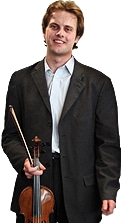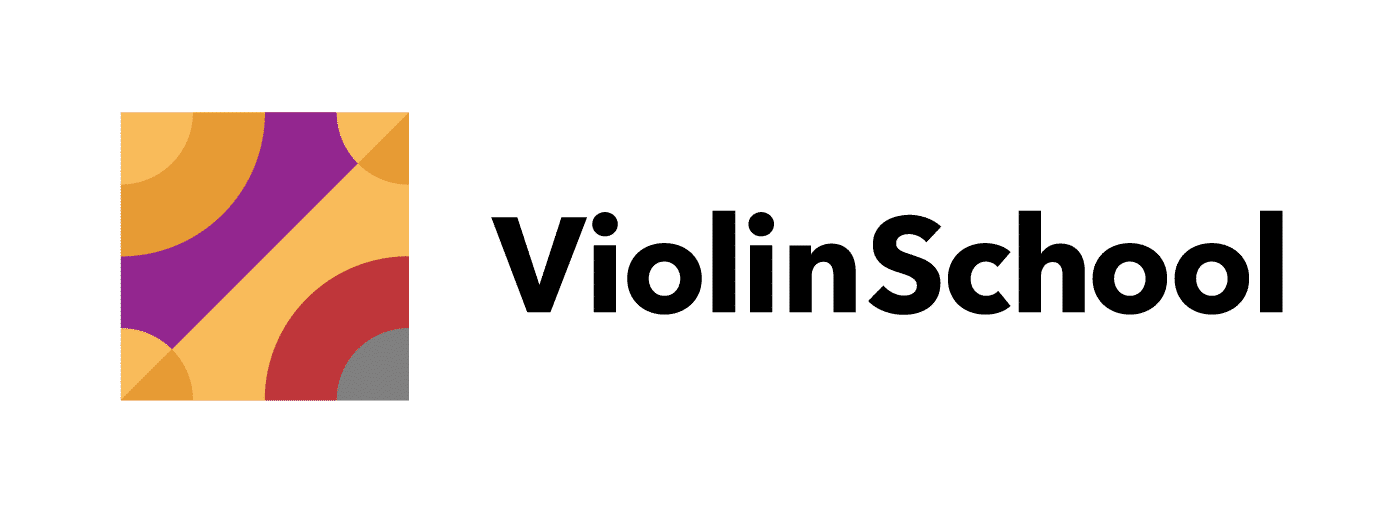
An introduction from Simon Hewitt Jones, Founder of ViolinSchool
Teaching is one of my absolute passions. Most of the time I work as a violin performer and recording artist (visit my own website here), so it’s a privilege and an honour to share what I’ve learnt with other people who really believe in the power of music education.
After teaching privately for a number of years, I started ViolinSchool (known at the time as ‘London Violin Studio‘) in early 2010 to create a formal framework for my own music teaching practice. In May 2012, I opened a teaching studio at 15 Palace Street, London SW1, changed the name to ViolinSchool, and expanded it into a small school and research centre with several teachers. (You can find a timeline of our history here).
ViolinSchool has since started to grow beyond my wildest expectations. As the organisation evolves, I’m aware that what we’re doing is already having a profound impact on how violinists do what they do. It’s a big responsibility and we want to get it right. Here’s the thinking that helped us get where we already are… please get in touch if you think you know what we need to do next!
Our mission with ViolinSchool is to help anyone, anywhere achieve whatever they want to with their violin-playing. To make this a reality, we aim to provide the highest possible standard of violin and music tuition, and to stay at the forefront of violin education.
I believe that creativity and community should be at the heart of great music making (see our approach), and the programs and courses we’ve created will give you not only the strongest possible foundation as a violinist, but will connect you with new friends and colleagues who share your love of the instrument.
I decided early on that the school would maximise creativity and avoid dogmatism. We put the learner in charge of their own learning process by offering multiple ‘touchpoints’ – routes of entry through which you can access violin information in the way that best suits your preferred learning style.
Therefore, we distill every violin technique down to its absolute first principles. By doing this, it is possible to speak in a jargon-free way that is equally informative for both beginners and people who have played before, by explaining universal principles (e.g. how physical movements of the body affect sound production). Such principles can be easily understood with or without a sophisticated violin technique.
Whether you’re just starting out, or an experienced pre-professional player, our approach is similarly diverse; we are interested in how you as an individual interact with the universal principles of violin playing. This often involves looking outside the realms of violin playing and music making, in order to inspire creative solutions within them.
Our teaching ‘philosophy’ is an open-ended amalgam of many wide-ranging methods, systems and other influences. I like to shift the responsibility as much as possible to the learner, especially with adult students, and therefore motivation is a key factor for success; learning must be fun, and students must be both enthusiastic and committed. That achieved, anything is possible.
ViolinSchool teaching currently pivots around three main focal points; violin technique, musicality and interpretation, and performance skills. My teaching of the latter owes much to sports psychology techniques and the ability of a person to consciously train their subconscious mind. How else do you think violinists play so many fast notes? There’s no time to think – you have to know that you can rely on your subconscious abilities, and for that, you need to know how to prepare yourself.
With a younger learner, the process usually runs in reverse. The younger the child, the more reliance there is on intuition and non-verbal learning. Children can pick things up faster by being shown what to do, and by copying demonstrations.
As people transition from child to adult learning patterns, we are careful to strike a good balance between conscious and intuitive approaches. For a teenager learning to a very high level, one of the biggest challenges is to develop an intellectual understanding of his or her intuitive abilities.
We are always focused on what works most naturally for the individual, not what is the ‘accepted wisdom’. When working on technique, I encourage the learner to find out what works best for their particular physiology, and build their technical setup accordingly. This achieves far more effective results than attempting to mimic existing (and often highly subjective) methodologies with relation to hand, arm and body positions.
We prefer to allow the student to find their own way wherever possible, including the ability to create their own technical solutions to musical problems. This approach keeps the onus on the student to approach things creatively, and with musical consideration.
Read more about our Approach to learning >>
“Historically, artists have been employed by leading institutions to bring emotional truth to established principles. Yet in our new global society, no institution has the wide acceptance to create values and direction for the majority of people. Markets in free societies are rapidly replacing governments and religious institutions as regulators of the highest authority, and markets perform without values; they do not converse in a human tongue. The arts can break new ground here, bringing human consciousness to bear on these flows of product and capital, energizing our interpersonal connections, and opening new doors for invention and practice.”
– Benjamin Zander, 2001, The Art of Possibility – Benjamin Zander, 2001, The Art of Possibility
“Why do we play music?”
I find it intriguing and informative to ask people why they play music (or the violin). Of course, there’s a wide variety of motivations, and some people genuinely do want to play alone. But more often than not, the answer boils down to a need for shared expression. The acts of performing and listening (and composing) go right to the heart of why and how we play music.
So can an artist / musician / violinist exist in a vacuum?
No doubt there are reams of philosophy that explore this very question, and I subscribe to the view that Art can exist purely for its own sake. That is why it is Art. It doesn’t need to be justified in terms of its function.
If we want to communicate effectively with an audience – as so many of us clearly do – we cannot isolate our work in a kind of protected utopia.
If shared expression is a goal for a musician-performer – or indeed a necessity – then the correct context and presentation is just as critical as the content.
At ViolinSchool, we do not believe that violinists should train in ‘ivory towers’. As violinists, we need to understand how to use our technical and musical abilities to make valuable contributions to the ‘music industry’, without ever ‘selling out’ or compromising our integrity.
Like music, technology is an apparatus for whatever we choose to make of it. It’s a neutral force that can be used for good or ill.
During the 2000s, arguably earlier, our society’s reliance on digital technology passed the point of no return. Like many innovations before it, from the wheel to electricity, it is now an integral part of our lives. We have to accept it, whether or not we choose to embrace it. We cannot ignore the technology that defines how we live.
My definition of technology is a broad one. Though in the present day we often think of technology as digital technology or industrial innovation, the word itself – from the Greek ‘téchnē’, meaning art, skill, or craft, and ‘logía’, meaning the study of – implies a wider view. Anything to do with how things are put together is interesting to this area of thinking. It’s all about how techniques, systems, methodologies, knowledge etc. come together to create a manufactured entity.
The violin is itself a marvel of technology. But we must remember that it, too, is ever-evolving through the people that make and play it. So as violinists, we must continue to search for better technological processes that support our work. If we don’t, we are just entertainers fiddling about on museum-pieces. There is more to the violin than that.
This is true for every part of what we do – just as we seek innovations in violin technique, so composers innovate in violin repertoire, luthiers in violin construction, business partners in creative performance and recording opportunities, and educators in learning techniques. ViolinSchool is committed to supporting and championing cutting edge research in the violin field, regardless of who and where it comes from.
Our own efforts are substantial too; through our researchers’ work and our online learning innovations, we are committed to pushing the boundaries of the ‘technology’ of and around the violin; be that the technology of construction or technology of performance or anything in between. Regardless of whether something ultimately works, it’s important to try, to explore relentlessly and keep pushing the limits of what is possible. For that is the only way we will progress and evolve our existing traditions in a way that keeps them relevant for audiences and practitioners of the future.
Many specialist subjects are by their nature international, and the world of violin-playing is no exception. We encourage our students – and ourselves – to think beyond national traditions and the present day, and see our relevance as musicians and artists within a broader international context. This is gives us the advantages of:
Our existence as a community is defined by our values.
We believe that knowledge itself is not to be coveted. The true value of violinistic knowledge is realised in its application, not its possession.
Within the limits of their physique, anyone can achieve anything with enough time and resources. To say that everyone is equal and that we are highly elitist is not a contradiction. ViolinSchool aims to be a neutral infrastructure for helping you realise your creative imagination, however large or small your ambitions. It is what you make of it.
As a relatively young organisation, we currently operate as a UK-based small business. We are entirely independent and are subsidised by a number of private investors. We aim to charge as little as feasible whilst still delivering the highest possible level of quality across everything we do.
Profit is a necessity for running the school as a good business, but it is never an end in itself. We aim to make a small % profit each year, which is reinvested in the school’s education programs and organic growth.
Some experienced violin professors only teach advanced students, but as you can probably sense from our philosophy above, our work is not just about fast-tracking perceived ‘talent’. Anyone who is committed and open-minded can achieve fantastic growth and work towards real success with the violin.
We’re always delighted to hear from really serious young players, but are equally happy to give trial lessons to enthusiastic amateur musicians and complete beginners. The online learning facilities on this website are designed to give anyone, anywhere access to the highest level of violin education.
If that sounds like you, please don’t hesitate to join as a member, or get in contact and we will be delighted to help you start your violin learning journey in the way that's best for you.
Thanks for taking the time to visit, and we look forward very much to helping you achieve your goals as a violinist.
Simon Hewitt Jones
Director, ViolinSchool
